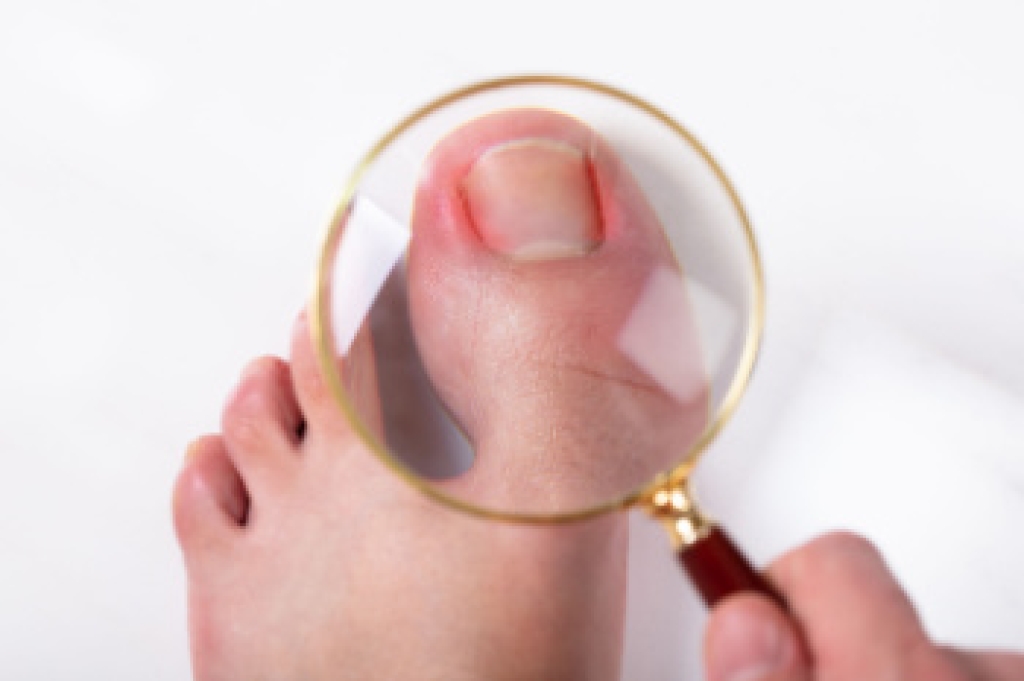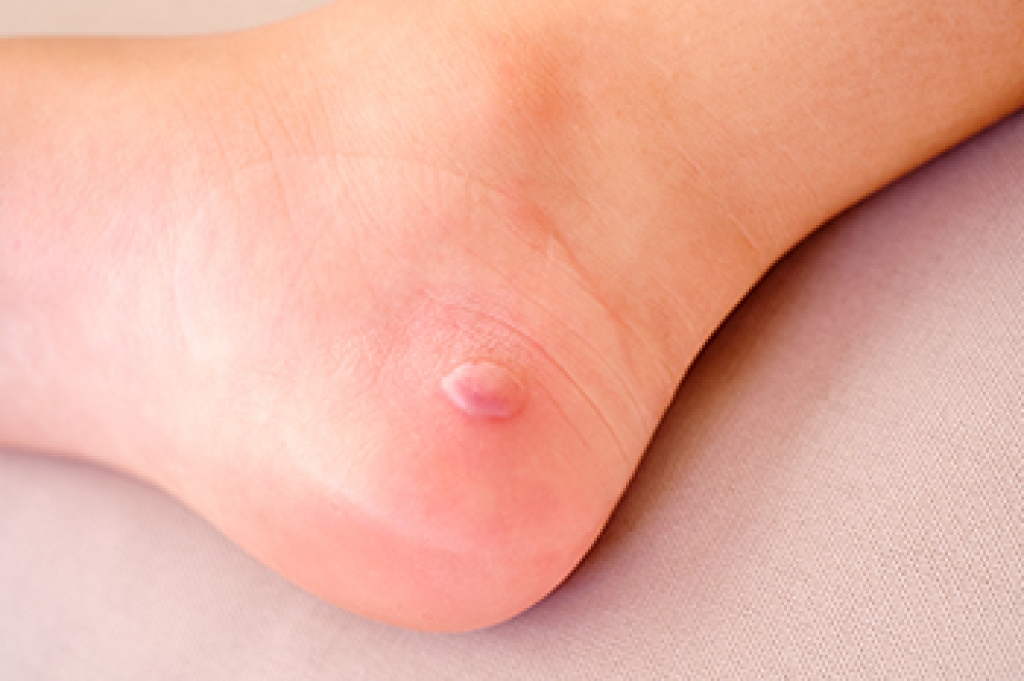
Ingrown toenails form when the edge of a toenail grows into the surrounding skin, often affecting the big toe. This can occur from improper nail trimming, pressure from footwear, toe deformities, or trauma. As the nail penetrates the skin, inflammation may develop, leading to redness, swelling, tenderness, and drainage. If left untreated, ingrown toenails can become infected and painful, interfering with walking, work, and other activities. A podiatrist can evaluate the affected toe and identify contributing factors, such as gait mechanics or structural issues of the foot. Treatment includes relieving pressure, addressing infection, correcting nail growth patterns, or performing a minor in office procedure to remove the problematic nail portion. If you have pain from an ingrown toenail, it is suggested that you make an appointment with a podiatrist for an exam, diagnosis, and treatment.
Ingrown toenails can become painful if they are not treated properly. For more information about ingrown toenails, contact Arnold Farbstein, DPM of Texas. Our doctor can provide the care you need to keep you pain-free and on your feet.
Ingrown Toenails
Ingrown toenails occur when a toenail grows sideways into the bed of the nail, causing pain, swelling, and possibly infection.
Causes
- Bacterial infections
- Improper nail cutting such as cutting it too short or not straight across
- Trauma to the toe, such as stubbing, which causes the nail to grow back irregularly
- Ill-fitting shoes that bunch the toes too close together
- Genetic predisposition
Prevention
Wearing proper fitting shoes and using proper cutting techniques will also help decrease your risk of developing ingrown toenails.
Treatment
Ingrown toenails are a very treatable foot condition. In minor cases, soaking the affected area in salt or antibacterial soaps will not only help with the ingrown nail itself, but also help prevent any infections from occurring. In more severe cases, surgery is an option. In either case, speaking to your podiatrist about this condition will help you get a better understanding of specific treatment options that are right for you.
If you have any questions, please feel free to contact our office located in Houston, TX . We offer the newest diagnostic and treatment technologies for all your foot care needs.




